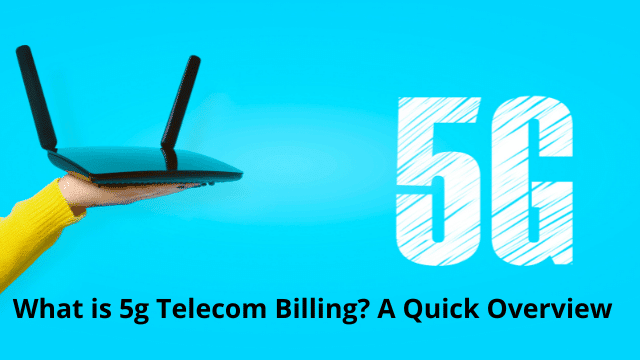As wireless technology rapidly evolves, it is vital for telecommunications service providers to step up their processes, including telecom billing. The looming roll-out of 5G technology could potentially disrupt the way wireless consumers are billed.
The 5G technology promises exciting opportunities and countless innovations. It offers lightning-speed connectivity, fast download capability, higher data rates, and bandwidth capacity, and increased connectivity between IoT-powered services and devices. Developments in wireless technology will usher disruptions across industries. For example, 5G technology will soon enable self-driving taxis in major cities and even rural areas.
But while the 5G network offers an amazing customer experience and exciting new services, the challenge for telecom companies is to find ways on how to turn these potentials into revenue. A billing system that is adapted to 5G technology is vital to telecom providers.
5G telecom billing systems are highly specialized IT solutions designed to ensure an efficient system for tracking customer usage and bills. You might wonder why there is a need to invest in this solution.
Why Is 5G Telecom Billing a Vital Investment?
As telecom companies move from 4G to 5G technology, we can expect a visible transformation in network and service delivery. But aside from the network, the business systems that underpin telecom providers also need a major overhaul. The billing system ensures a seamless user experience and a solid user relationship.
5G telecom billing prepares providers from the exponential increases in the volume and variety of uses of their network. The majority of existing legacy billing solutions are not designed to handle this massive growth. Looking at the capabilities and features of current billing systems, they may be unable to fully handle 5G. Your billing solution might have worked in both the 3G and 4G era but may cause costly errors, unwanted delays, and unnecessary bottlenecks as the network move to 5G. Likewise, older billing systems may not be fully equipped to handle the potential network security problems that can go along with 5G technology.
Billing systems play a crucial role in delivering the potentials and promises of 5G technology. Advanced telecom billing systems need better flexibility than existing solutions. Equipped with adaptive business logic, 5G billing solutions enable the rapid creation of new services as well as revision of existing customer plans. In a rapidly evolving IT industry, maximum flexibility is crucial for telecom companies to stay competitive.
What features should telecom companies look for in a 5G telecom billing solution?
In general, 5G-ready billing systems may offer basic features but some will come with advanced capabilities. When looking for the right billing system, you want one with cloud-native architecture and streamlined billing processes.
Cloud-Native Solution
With the rollout of 5G technology, telecom providers are poised to offer and manage a variety of services across 5G-ready devices. Aside from the usual data subscription, there may be additional products like file or movie downloads, device usage, paid chat, or call subscriptions. These services are not confined to mobile phones but also many other IoT devices.
Although it’s still hard to predict the specifics of 5G technology until its full implementation, telecom companies must not study and prepare to monetize other potential revenue streams. This requires a highly agile billing system that can handle newfound variety and volume – without inaccuracies, delays, and revenue losses. 5G billing standardizes these disparate transactions and makes them concise into a singular invoice for customers.
Developers of 5g and broadband telecom billing software by Kansys emphasized that simply retrofitting legacy billing systems for cloud functionality cannot provide the same level of agility required to fully monetize 5G-backed services. This is why you should pick cloud-native billing solutions. These billing systems are designed to evolve, innovate, and serve the needs of the telecom company.
Streamlined Billing
Considering the variety of services that 5G networks can offer, a single, comprehensive billing for customers is important to avoid confusion and billing delays. When the invoice is streamlined and easier to understand, it is easier to track and pay the bill. On the other hand, if bills are separate it more difficult to manage.
With 5G networks convergent billing can be a challenge. 5G telecom billing are equipped to manage both postpaid and prepaid subscriptions. It is also capable of handling the volume of traffic that is forecasted to further grow with the rollout of 5G technology.

Hello, My name is Shari & I am a writer for the ‘Outlook AppIns’ blog. I’m a CSIT graduate & I’ve been working in the IT industry for 3 years.
